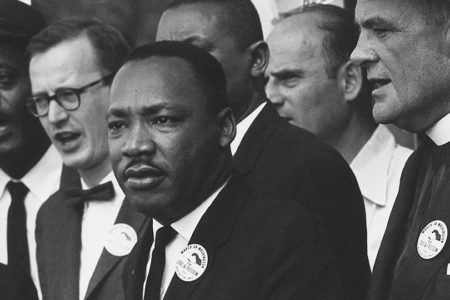Jacob’s Goodbye
A look at Israel’s final days and his prophecies concerning his sons, who would become the nation of Israel.
People often approach their so-called golden years with an unrealistic view of the future. They envision themselves healthy and enjoying carefree living and financial security. Often, however, the opposite is true. And they are unprepared for the changes and limitations they soon will face.
Jacob’s life was somewhat different. He faced trouble earlier but experienced many blessings with his family in the latter years of his life.
Jacob’s Plight
Jacob’s early life was filled with scandal, intrigue, danger, suspense, family division, difficulty, and heartache—including the supposed death of his favorite son, Joseph, at the tender age of 17. But at 130 years old, Jacob was reunited with Joseph, who had become the most powerful man in Egypt next to Pharaoh.
So at Joseph’s request and with God’s blessing, Jacob gathered all his possessions and family of 70 people and made the final pilgrimage of his life, leaving Canaan to live in Egypt. He took a great step of faith, trusting in God’s promise to forge his family into a great nation there (Gen. 46:2–4).
Joseph arranged a historic meeting with Pharaoh, five of his brothers, and his father. When Pharaoh questioned Jacob about his age and life, the patriarch replied, “The days of the years of my pilgrimage are one hundred and thirty years; few and evil have been the days of the years of my life” (47:9). Then Jacob blessed Pharaoh and left his presence (v. 10).
Although Jacob and his sons were shepherds (a profession the Egyptians despised), Pharaoh nevertheless gave them the fertile delta region of Goshen. It was excellent land for grazing flocks and growing crops (46:28–34; 47:11), and Jacob (renamed Israel by God, 32:28) and his family went from being strangers in a foreign country to residents in the fertile region of Egypt for 430 years (Ex. 12:40). In Goshen, God blessed Israel abundantly and forged his family into a nation of 2.5 million to 3 million people. Jacob was blessed in Egypt for the next 17 years until his death.
Jacob’s Prophecy
Eventually, Jacob’s health began to fail. He became ill, bedridden, and almost blind. Knowing he was dying, Jacob wanted to review his life with his sons and leave them with words of warning and blessing. His final remarks on his deathbed are of great importance, which is why they are recorded in such detail.
Joseph brought his two sons, Manasseh and Ephraim, to their grandfather’s bedside. When Jacob heard of Joseph’s arrival, he mustered the strength to sit on the edge of his bed. Immediately, he began to talk about his pilgrimage in Canaan and the blessing he received, and then he wasted no time blessing Joseph’s sons.
But he did more than bless them. He adopted them, elevating them to equal status with their uncles. Joseph “brought them from beside his knees” (Gen. 48:12) and placed his elder son, Manasseh, on Jacob’s right side and his younger son, Ephraim, on Jacob’s left—making it easy for Jacob to lay his hands of blessing on them. But the Lord guided Jacob to cross his hands and lay his right hand on Ephraim, giving the younger son preeminence over the elder. Joseph tried to remove his father’s right hand from Ephraim, but Jacob refused to budge, revealing this was the Lord’s will (vv. 17–20).
Jacob then gathered his other sons to his bedside for a final word to each. What he said was more a prophetic utterance about their lives and destinies than a blessing and is of great significance concerning Israel’s history.
Reuben (Gen. 49:3–4)
The firstborn son was entitled to the rights of primogeniture, meaning he stood to inherit more than the other sons. But this was not to be Reuben’s lot because of his gross sin. He had slept with Bilhah, his father’s concubine (35:22). He was unstable as water and would not excel. Reuben settled east of the Jordan River (modern-day Jordan) and would decline over time, producing no judges, prophets, or rulers.
Simeon and Levi (Gen. 49:5–7)
Jacob cursed them for killing Shechem, who had raped their sister, Dinah, as well as for slaughtering all the men of that city and confiscating its wealth and families (chap. 34). The two brothers would be scattered throughout Israel. Simeon was absorbed into the tribe of Judah, and Levi was scattered throughout 48 cities in Israel, destined never to own any land but later to become priests (Ex. 32:26–29).
JACOB’S DOZEN
See how Jacob’s prophecies unfolded for the twelve tribes of Israel in Jacob’s Dozen by Will Varner.
Judah (Gen. 49:8–12)
Judah was highly esteemed in Jacob’s eyes. It was Judah who saved Joseph’s life when his brothers tried to kill him (37:26–27). Judah also offered himself as security to Jacob for taking Jacob’s youngest son, Benjamin, to Egypt as Joseph had requested before anyone realized who Joseph was (43:8–9). It was Judah whom Jacob sent ahead to prepare for his travel to Egypt (46:28). Judah would emerge as leader of the tribes, from which the royal line of Israel’s kings would come. Jacob compared Judah to a lion that is courageous, mighty in conquering its prey, and king of beasts (49:8–9). But above all, Judah is the tribe from which the Messiah would come: “The scepter shall not depart from Judah…until Shiloh comes” (v. 10). The word Shiloh means “whose it is” or “whose right it is.” Both ancient rabbinical and Gentile scholars agreed this is a Messianic prophecy. Thus the ruling staff and scepter (right to rule in Judah) will not depart from Judah until He (Messiah) comes whose right it is to rule; and then He will receive the scepter forever. The idea is that there will be no need for any successor to rule in Judah once the Messiah comes, and the royal power to rule remains forever invested in Him. This prophecy was fulfilled in Jesus and will be fully realized after His Second Coming during the Millennium. The prophecies of verses 11–12 look forward to the Messiah’s Millennial rule when Israel will experience peace, prosperity, and plenty on Earth.
Zebulun (Gen. 49:13)
Zebulun received land between the Mediterranean Sea and the Sea of Galilee in the north. The tribe did well commercially because of its location on trade routes in the Jezreel Valley.
Issachar (Gen. 49:14–15)
A retiring spirit characterized Issachar. He was not aggressive, like some of Israel’s other sons. The people of Issachar were described as a “strong donkey” (v. 14), meaning they were hardworking and content with their station in life, though they lacked notable achievements. The tribe was susceptible to surrounding invaders and subservient to them. It was said of the men of Issachar that they “had understanding of the times, to know what Israel ought to do” (1 Chr. 12:32).
Dan (Gen. 49:16–18)
This tribe is compared to a serpent for craftiness and deception. It was constantly at war with its neighbors. It is pictured as a deceitful, treacherous, subtle, unwary enemy that strikes without notice. Dan conquered Laish (also called Leshem) and acquired more land than originally allotted (Josh. 19:40–48). Dan was the first tribe to bring idolatry into Israel (Jud. 18:30–31), and King Jeroboam introduced calf worship through Dan (1 Ki. 12:2–30). After uttering this prophecy, Jacob suddenly blurted out, “I have waited for your salvation, O LORD!” (Gen. 49:18). The word wait means to look eagerly with expectation, steadfast endurance, and faith. Jacob had a confident hope that God would bring about salvation for both him and his son.
Gad (Gen. 49:19)
Gad, like Reuben, chose land east of the Jordan River. The tribe continually faced war with Gentiles and eventually triumphed over them. Elijah the prophet was from Gad.
Asher (Gen. 49:20)
Asher was told he “shall be rich, and he shall yield royal dainties.” His inheritance was fertile land in the Carmel valley along the Mediterranean coastland. The tribe thrived agriculturally and grew wealthy. Moses called Asher “most blessed” and “favored” and said he would “dip his foot in oil” (Dt. 33:24). Its produce was a favorite of kings.
Naphtali (Gen. 49:21)
Naphtali is described as “a deer let loose; he uses beautiful words.” The verse describes Naphtali as loving freedom, living without restraints, and not wanting to be governed by regulations. The men of Naphtali moved quickly and gracefully like deer in the hill country where they resided, and they spoke eloquently.
Joseph (Gen. 49:22–26)
Jacob waxed eloquent in his blessing of Joseph as a godly man. He called Joseph a “fruitful bough,” speaking of his work in Egypt and of Joseph’s two sons, who would become major tribes in Israel. Joseph’s foes were like “archers,” shooting verbal arrows to destroy him. But Joseph’s “bow remained in strength,” speaking of his favor with and faith in God through all his trials. Jacob’s final words to Joseph overowed with blessing. In fact, the word blessing appears six times; but not once did Jacob use the word bless in connection with his other sons.
Benjamin (Gen. 49:27)
Benjamin is compared to a “ravenous wolf” devouring his prey. Men such as Saul, Abner, Sheba, and Shimei from the tribe were fierce in battle.
Jacob’s Passing
After prophesying over his sons, Jacob gave instructions to them concerning his funeral. He made them promise to carry his body back to Canaan and bury him in the cave of Machpelah, where Abraham, Sarah, Isaac, Rebekah, and Leah were buried. Then he lay back in bed, took his last breath, and passed into the presence of the Lord—a beautiful picture of dying grace (vv. 29–33). He was 147 years old (47:28).
Joseph “fell on his father’s face and wept over him, and kissed him” (50:1). He had his own private physicians embalm Israel, which took 40 days. The Egyptians wept over Israel’s passing for 70 days. Then Israel was given a royal funeral made up of Pharaoh’s servants and elders, along with the households of Joseph and his brothers. The mourners traveled to Machpelah, where they lamented seven days at the threshing floor of Atad, then returned to Egypt (vv. 2–14).
Jacob had a difficult life, but he finished well. His pilgrimage could be characterized by plight, preservation, providence, promises, and personal direction by God. His history will live in perpetuity. And though he was far from perfect, he was a paradigm of faith.









We are beginning a Sunday school lesson on your book The Tabernacle. I have read the first chapter an so excited about this study. Thank you.